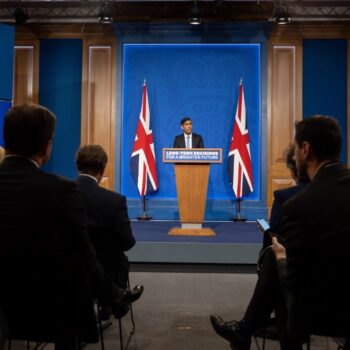Energy costs have created a pain in the neck for this Government that has refused to go away. Will they cap energy prices or won’t they? This question remains in doubt despite numerous political statements on the matter. But this was not the only political initiative to address concerns over energy costs.
At the beginning of August, Secretary of State of Business Energy and Industrial Strategy, Greg Clark, commissioned a wide-ranging review of energy costs from the eminent academic Professor Dieter Helm. The aim of the review was to find ways to keep the lights on and meet our carbon reduction budgets as cheaply as possible – simple! And poor Professor Helm was given only 30 days to answer the question that has been consuming politicians, academics and industry for years. Yesterday his report was published.
Whilst city-states and individuals in ancient Greece might have been happy to trust the cryptic utterances from the Oracle of Apollo when he periodically chose to come down from Mount Parnassus, we generally now prefer our policy to be based on a process of extensive consultation and analysis. Dieter was not able to enjoy the benefit of time or resources and has had to come up with an answer largely on his own (albeit with the advice of a worthy panel of experts). Fortunately, he has written extensively on UK energy policy and was able to draw on this back-catalogue. Many of his recommendations therefore come as little surprise and must surely have been expected by the recipients of the report in Government. So, if they knew what they were going to get, why did they commission such a report? Do they seriously want to embark on another process of radical reform? The answer to that question will become apparent over the coming weeks and months.
What about the report itself? There are a whole series of recommendations. Inevitably, different constituencies will find things they like and things they don’t. For me, the overall framing is excellent. It basically says that we may, or may not, have made some bad decisions in the past but that is not a good reason to abandon attempts to decarbonise our energy system and expect to do it cheaply. Professor Helm recommends that legacy costs, for example from the early renewable projects and, should it ever be built, Hinkley nuclear power station, should be clearly separated out and charged to consumers in a way that supports industrial competitiveness and other political objectives. We can then focus on making the most of the rapidly declining costs in energy technologies and opportunities presented by ‘smart’ energy usage and get energy prices as low as possible going forward.
The way Professor Helm proposes that we achieve this is through some significant changes to the market and regulatory framework. At its heart is an economy-wide carbon price coupled with carbon border tariffs. Putting aside the implementation challenges of such a proposal, this seems at odds with recent emerging consensus that, whilst carbon prices are great at optimising existing operations, they are poor at driving investment and efficiency and next-to useless when it comes to supporting innovation. As the recent Clean Growth Strategy pointed out, all of these will be essential if we are to take advantage of the new opportunities. Moreover, unless all technologies have miraculously similar costs, carbon prices that are sufficiently high to have an effect will lead to large amounts of money being transferred from consumers to producers. It is not clear how this fits with the objective to reduce the burden on consumers. I wonder how all those with gas central heating would react to a sudden hike in costs for the sake of theoretical long-term economic efficiency.
Within the discussion of ‘independent system operators’ (worthy) and ‘unified equivalent firm power capacity auctions’ (less so), there lurks a proposal of huge significance that strikes at the heart of our current plans to decarbonise the energy system. At present, the Committee on Climate Change recommends future carbon budgets to parliament on the basis of a ‘linear reduction trajectory’. In other words, we don’t want to pass the bulk of the costs down the line to the next generation when all the easy measures have already been taken. Professor Helm suggests that this is misplaced. He claims that innovation will mean that we will be able to do a lot more in the decades to come and do it more cheaply than we can now. On that basis he argues that we should reduce our ambition in the early years. He may be right – but when the risks of failure are so asymmetrical it is surely best to err on the side of caution.
Perhaps the biggest disappointment with the review is that it fails to engage with the revolution that is beginning to happen in the energy system. The choices available to consumers in the way they consume (and produce) energy are changing rapidly and this in turn demands a re-think in markets, regulation and business models. Unfortunately, much of the solution prescribed by Professor Helm is grounded in the current system architecture and focused on national wholesale markets and network infrastructure. You cannot criticise the report for failing to describe the new paradigm in detail – no-one has yet thought this through – however, it is a mistake to believe that the solutions to the problems of ten years ago will remain valid in ten years time.
So, what will the Secretary of State do with the report? There are really two options. First is to cherry-pick a few recommendations for early implementation. This is always dangerous when the recommendations have been presented as a package. Alternatively, play for time and consult.
Incidentally, does the report say that energy prices should be capped? Not exactly – it argues that a cap should only apply to profit margins. Oh dear!


